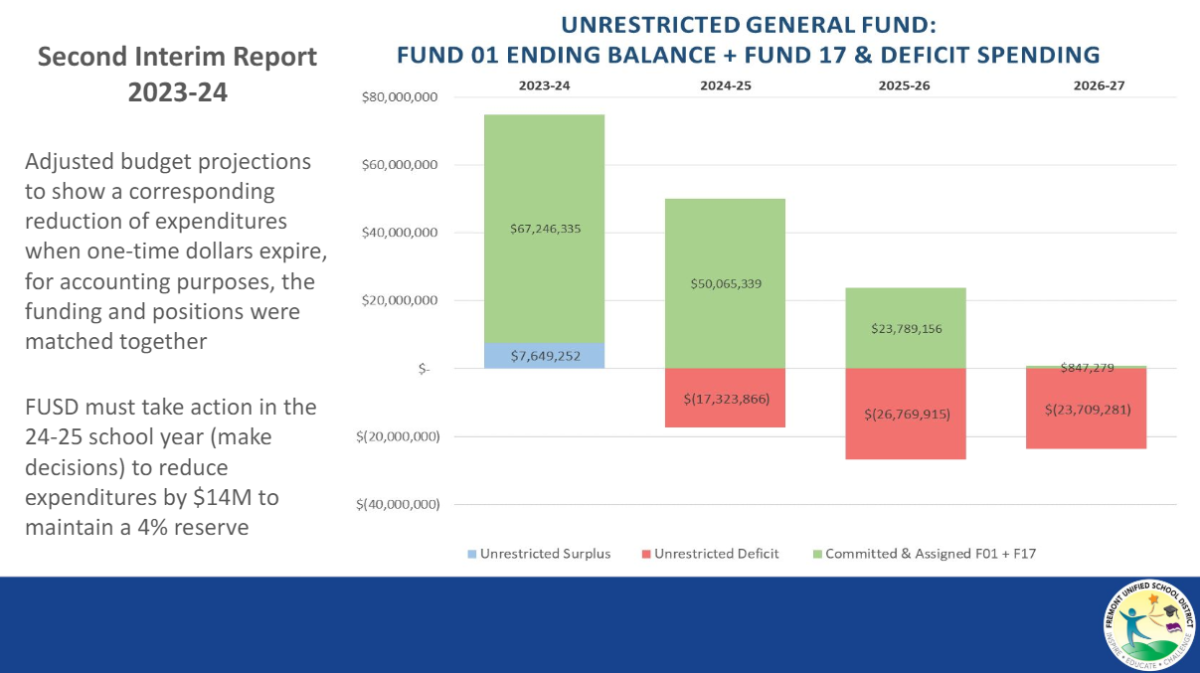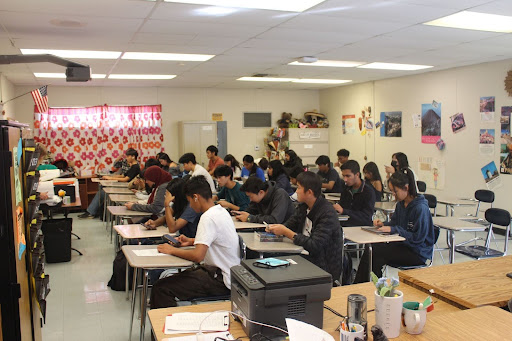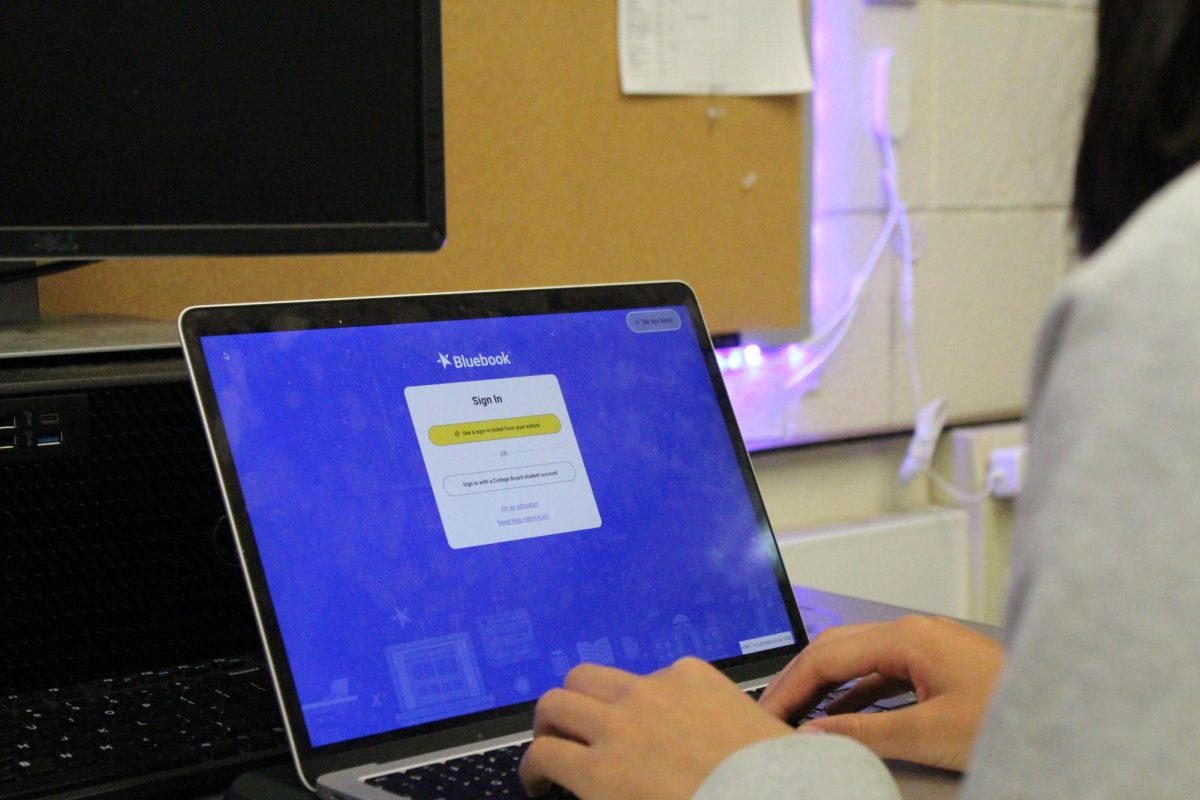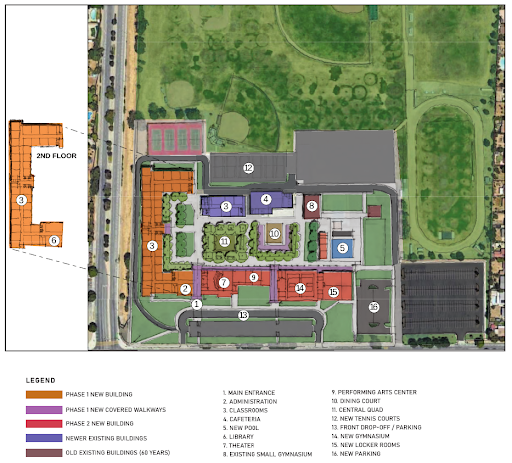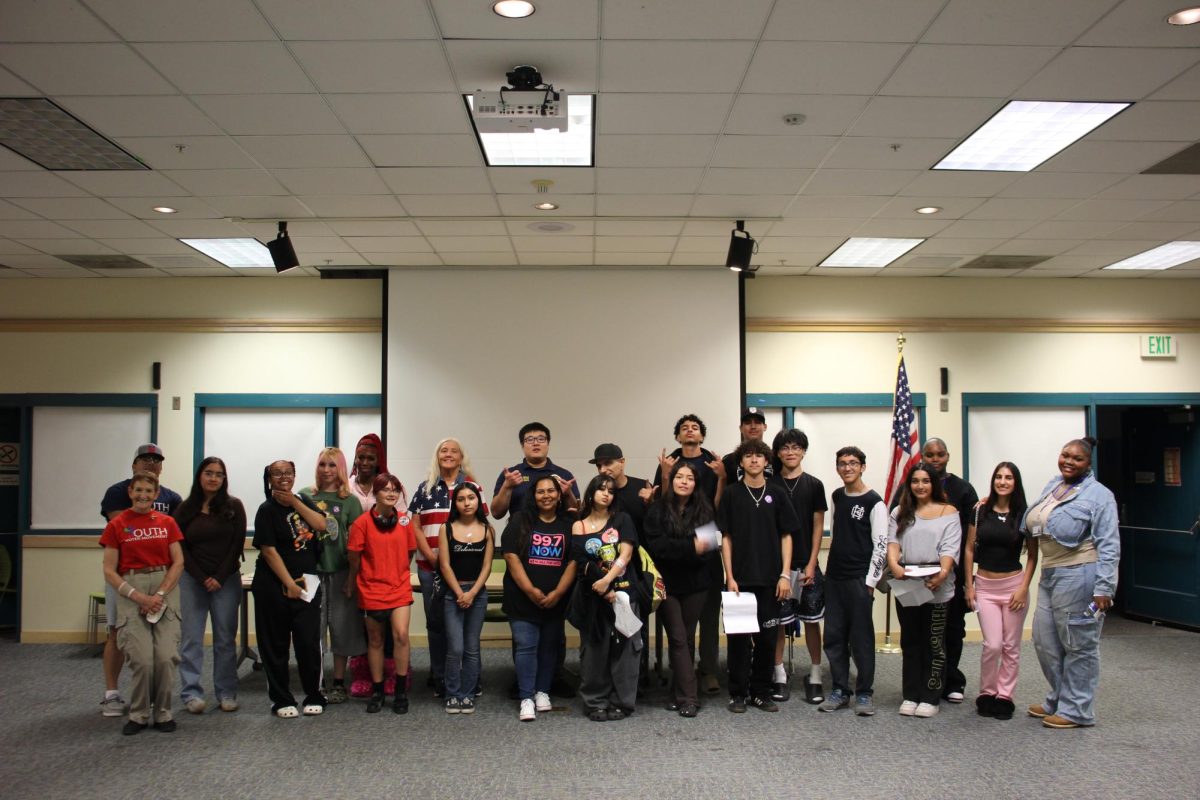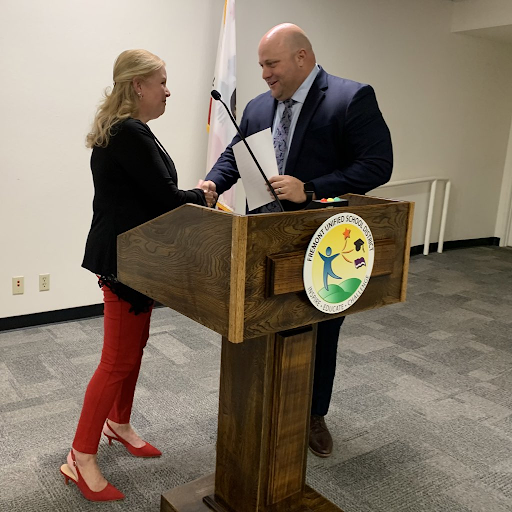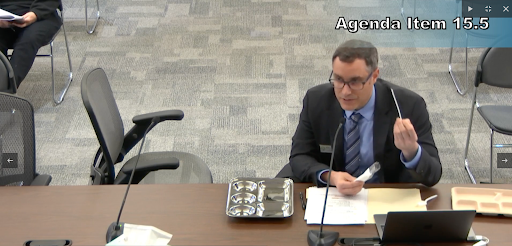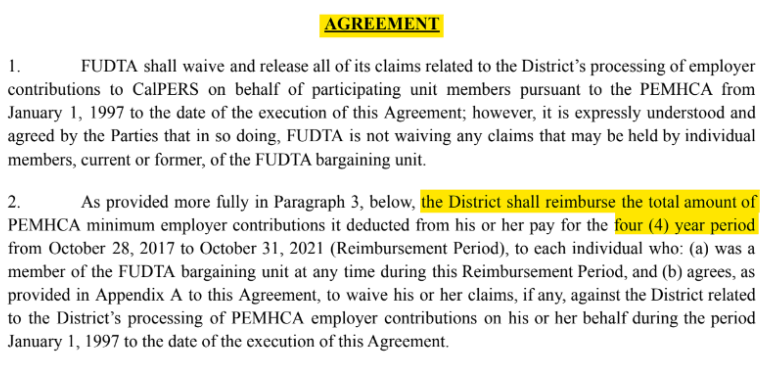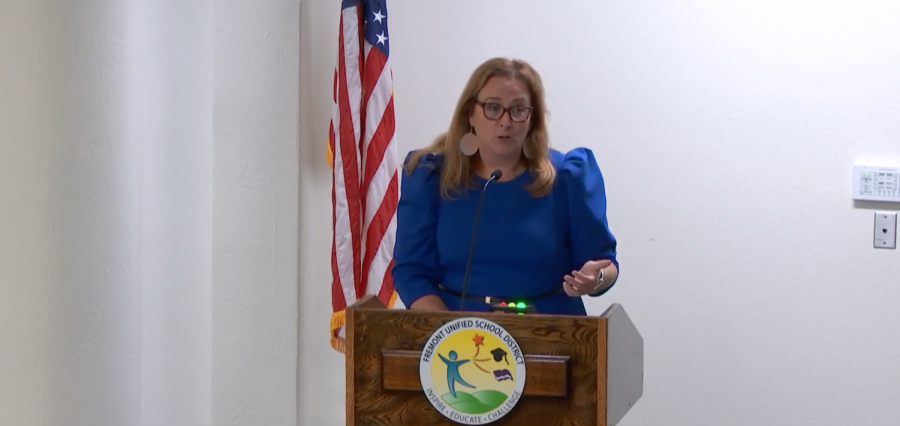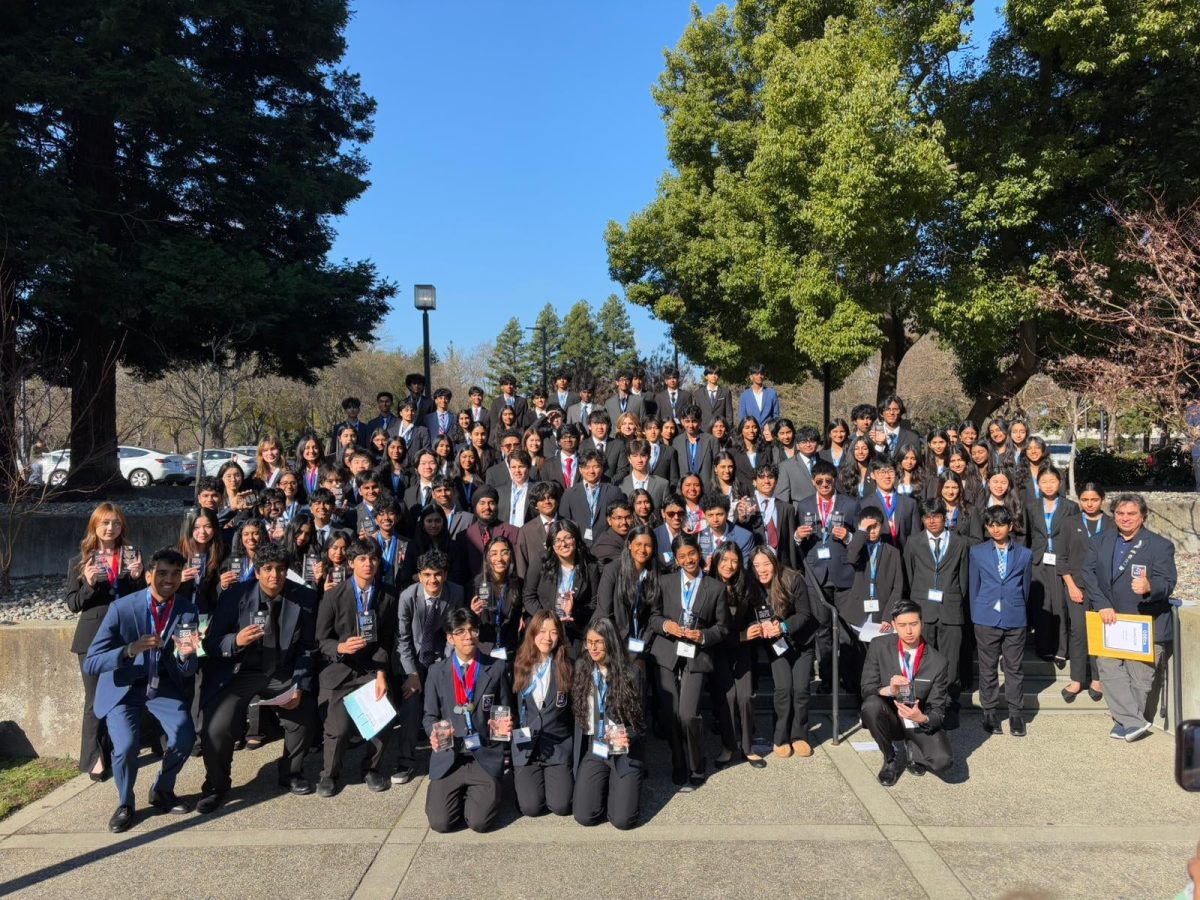On April 17, 2024, the Fremont Unified School District (FUSD) Board of Education hosted a special meeting to analyze the proposed Second Interim Budget in greater depth and correct common misunderstandings surrounding it. During the meeting, the district explained how the budget worked, the timeline for drafting the budget, and many immediate concerns such as deficit spending and one-time money expiring as well as other related issues.
Despite seeing a budget surplus of $6-7 million left over this year and being “positively certified” to be able to meet their financial obligations for the next two years, FUSD and its schools are still facing an overall deficit (when money spent exceeds money coming in) that is expected to continue into future years. As a result, the district is facing a projected $14 million in cuts to their operating budget for the 25-26 school year to recover the deficit.
Some contributing factors to this deficit include the declining enrollment of students all across the district and the district’s obligation to meet state minimum reserves (funds set aside) requirements. In addition, many one-time revenues allocated towards staffing positions will also expire soon, some notable examples being the Learning Recovery Block Grant and Measure I Parcel Tax expiring in the 2024-25 school year. The Learning Recovery Block Grant is state-issued revenue for supporting schools through and emerging from the COVID-19 pandemic and the Measure I Parcel Tax is unrestricted revenue used to fund schools.
In light of these budget deficits, the district board has proposed to close many staff positions in their Second Interim Budget Report — notably full-time Library Media Technicians (LMTs), Intervention Teachers, school counselors, and campus supervisors at all school levels from K-12.
Many educators have raised concerns about the potential implications of these cuts. Ms. Morales, LMT at Irvington, describes how “LMTs work hours allow for libraries to be open before and after school. Without a LMT, the library would be closed during those times because Library Teachers are only required to work the school bell schedule. The duties of LMTs and LTs complement each other and students benefit greatly from having both of them in their high school library.”
“Librarians interact with and support more students daily than any other staff member on campus [and] libraries are the only place that many of our students can go to get essential academic services and resources like books, printing, and computer use,” Irvington librarian Mrs. McAuley further explains. “Even if the cuts were limited to elementary and middle schools, it is important to remember that elementary and middle schools in FUSD only have one employee. If this person is cut, that means the library would completely close.”
However, Principal Hicks has refuted many rumors regarding the library and Wellness Center in a personal interview, saying, “That is not correct. The Wellness Center is not going to get cut. There is no talk of cutting the libraries — I’m not sure why that’s floating around. Library money may have been paid from Pot A, and when that is used up they are going to use Pot C to pay it. They are not going to close it down. The Wellness Center is a grant, but as far as I know, there’s no plans to cut it.”
Superintendent Cammack has also clarified how the district has not yet finalized any decisions to cut these positions, explaining in a personal interview, “In our budget reporting, we’ve recently accounted for the fact that when that funding goes away, we must remove the expenses associated with the positions. While I can understand how that may be viewed as an action to eliminate or collapse positions and/or positions, those actual decision points have not been reached yet.”
While many have voiced popular sentiments to allocate more money from the budget’s Ending Fund Balance (the money leftover after revenue pays for all expenses) or the district’s General Fund (the main operating fund of the district) to staff positions, the district board’s April 17 meeting has corrected the misconception that “there is just leftover money lying around to be spent.”
Associate Superintendent Danny Hillman described in the meeting that while the budget sees an Ending Funding Balance of $85 million, the district can only freely allocate Ending Funding Balance that is “unassigned” — funds not already designated for an expenditure. However, the district reports an “unassigned” Ending Funding Balance of $0, which means that the board would have to make reductions from elsewhere.
Yajing Zhang, President of the Board, clarifies in a personal interview about how it is unrealistic to pull money from the General Fund to staff positions as they are already dedicated to other categories. “80% of the general fund pays towards teachers’ salaries and their benefits, while 20% pays towards students, books, and other things,” she explains. “Out of this general fund, we invest a big chunk of the money to support special education because while the federal government mandates this program, they only fund 8% of our need and the rest of the funding comes from our general fund. Then there is not much left for all these other positions due to us needing to fund the government-mandated programs first.”
Dianne Jones, one of the board’s trustees, also highlights how taking funds from other categories is highly unrealistic and detrimental. “We’re already spending far below the state average per ADA [average daily attendance] and our students suffer because of that in many respects. They don’t get textbooks updated as often as other districts. There’s not a lot of room to make the kind of cuts that we’re going to have to make.”
Regarding the difficult situation FUSD faces — from board to educators to students — Vice President Larry Sweeney explains in the April 17 meeting that “The way the state funds us is not helpful to districts that don’t have the political clout that other districts do. The fact of the matter is that it won’t be fixed, but the reality is it’s not fair. We are working with the community right now to work through these deficits.”
The district is currently in the process of hearing input from the community about the proposed budget. As a result, many FUSD educators and students have started to reach out to the board about their concerns. “The people who make decisions in the district care what you think more than they care what I or any other adult in the system thinks. Write or speak to the Board and the district Superintendent about specifically what the library, counselors, campus supervisors, and these other positions mean to you,” encourages Mrs. McAuley. “Whenever we have budget cuts, the district has to make tough choices about what things are essential to education and which are “luxuries” that we can’t afford in times of funding cuts and lowering enrollment. If you think libraries, counselors, and these other positions are essential, they need to hear why.”
The district is currently planning on sending Budget Staff to visit schools and departments to learn more about current and future years’ needs, which will start on April 30. The Board of Education will read the proposed budget in its June 12 meeting and take action on it in its June 26 meeting.


